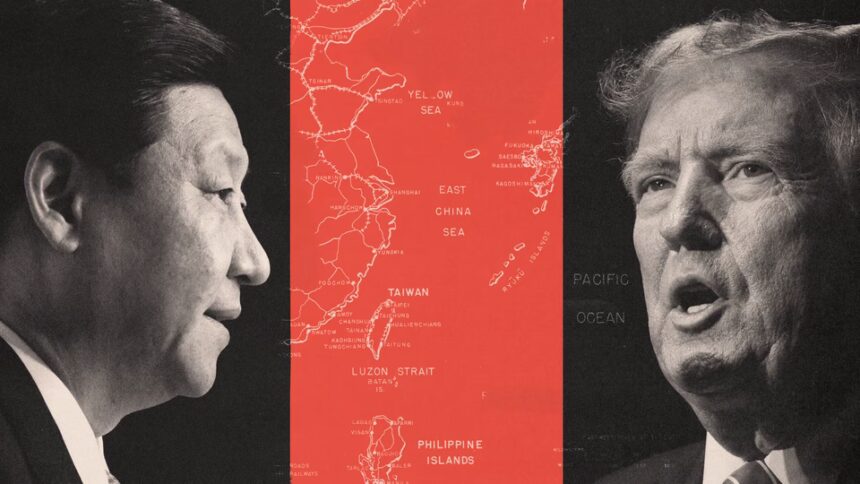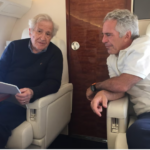Summary & Additional Remarks by Geopolist | Istanbul Center for Geopolitics:
Taiwan finds itself at a turning point—one shaped by rising threats from outside, growing uncertainty from longtime allies, and deep political divisions at home. The island’s democratic future is no longer just a question of military might or diplomatic ties, but of whether Taiwan can hold together politically and socially under increasing pressure from all sides.
China: From Patience to Pressure
For decades, Taiwan has lived under the looming shadow of the People’s Republic of China. Beijing has always insisted Taiwan is part of its territory, and in theory, any move toward formal independence could provoke a military response. Yet, until recently, there was an unspoken understanding: as long as Taiwan didn’t cross certain lines—like changing its constitution or declaring independence outright—China might tolerate the status quo.
That fragile balance seems to be unraveling. Under Xi Jinping, China’s posture has shifted from strategic patience to open frustration. Xi has made it clear that waiting indefinitely is no longer acceptable. His military is not just growing stronger—it’s getting more specific in its preparations. From war games off Taiwan’s coast to bridge barges and kamikaze drones, Beijing appears to be laying the groundwork for the real thing. As one U.S. admiral put it bluntly, these aren’t just exercises—they’re rehearsals.
And it’s not just about tanks and missiles. China is also using cyber tactics, legal pressure, propaganda, and disinformation to chip away at Taiwan’s ability to defend itself politically and socially. The shift is clear: where China once sought to deter independence, it now seems intent on forcing unification.
A House Divided
At the very moment Taiwan needs unity, its domestic politics are deeply fractured. The two main parties—the DPP and the KMT—see China, and Taiwan’s identity, in fundamentally different ways.
The DPP sees Taiwan as a sovereign, independent democracy and views China as a threat to its survival. It wants to strengthen defenses and deepen ties with the United States. The KMT, on the other hand, maintains a more traditional view: that China is Taiwan’s cultural motherland. It opposes provocation and prefers engagement over confrontation. Many KMT leaders are skeptical of expanding defense budgets or appearing too close to Washington.
This divide plays out not just in campaign speeches, but in real policy decisions. Taiwan’s legislature, led by a KMT-led coalition, has blocked or slashed funding for submarines, drones, and even public outreach to recruit soldiers. Even civil defense initiatives—like the Kuma Academy, which teaches ordinary citizens how to prepare for emergencies—have become political battlegrounds. And meanwhile, some major media outlets in Taiwan have been accused of echoing Chinese Communist Party talking points.
The result is a kind of strategic drift. With two different visions for how to deal with Beijing, Taiwan struggles to speak with one voice—let alone act decisively.
A Fading American Umbrella?
Then there’s the United States. For decades, the U.S. has been Taiwan’s most important security partner—its chief arms supplier and political backer. But even that relationship feels less certain than it once did.
The Trump administration has pushed Taiwan to drastically increase defense spending, suggesting it should dedicate as much as 10% of its GDP to military preparedness. For Taiwan, a small island with limited resources and a modest overall budget, that’s simply not realistic. And even if the money were there, questions remain about what exactly the U.S. would do in a real crisis.
Trump himself has made conflicting and sometimes dismissive remarks about Taiwan. He’s accused the island of stealing U.S. technology and suggested he’d respond to a Chinese invasion not with military force, but with economic sanctions. That kind of ambiguity—once a strategic asset—is now causing anxiety.
There’s also the question of capability. The U.S. defense industry has struggled to keep pace with China’s massive arms production. Even with superior technology, America might not be able to sustain a long conflict in the Indo-Pacific. Taiwan could find itself in a fight it can’t win—even with outside help.
Beijing’s Offer: A Soft Surrender?
Against this backdrop, China is offering what it calls a peaceful solution: voluntary unification. No invasion, no war—just a political settlement that ends the decades-long conflict. On paper, that might seem tempting. It would eliminate the threat of attack, end the need for U.S. protection, and resolve the island’s status once and for all.
But it comes at a steep cost. China’s brutal crackdown on Hong Kong since 2019 offered a chilling preview of what “one country, two systems” really looks like in practice. The PRC’s latest white paper on Taiwan quietly removed earlier promises that Taiwan could keep its military, its government, or even its way of life. And increasingly, Chinese state media and social platforms are filled with disturbing rhetoric—phrases like “Keep the island, not the people”—hinting at what unification could mean for the Taiwanese themselves.
What Now?
Taiwan is caught in a dangerous moment. China is growing bolder. U.S. support, while still present, feels more conditional. And at home, political divisions are making it harder to act with clarity or purpose.
To preserve its freedom and identity, Taiwan will need more than just weapons. It needs unity, resilience, and a renewed sense of shared purpose. That means finding ways to bridge internal divides, investing smartly in defense and civil preparedness, and strengthening ties with partners who share its values. The time to act is now—while Taiwan still has the freedom to choose its path.
Read more here.







